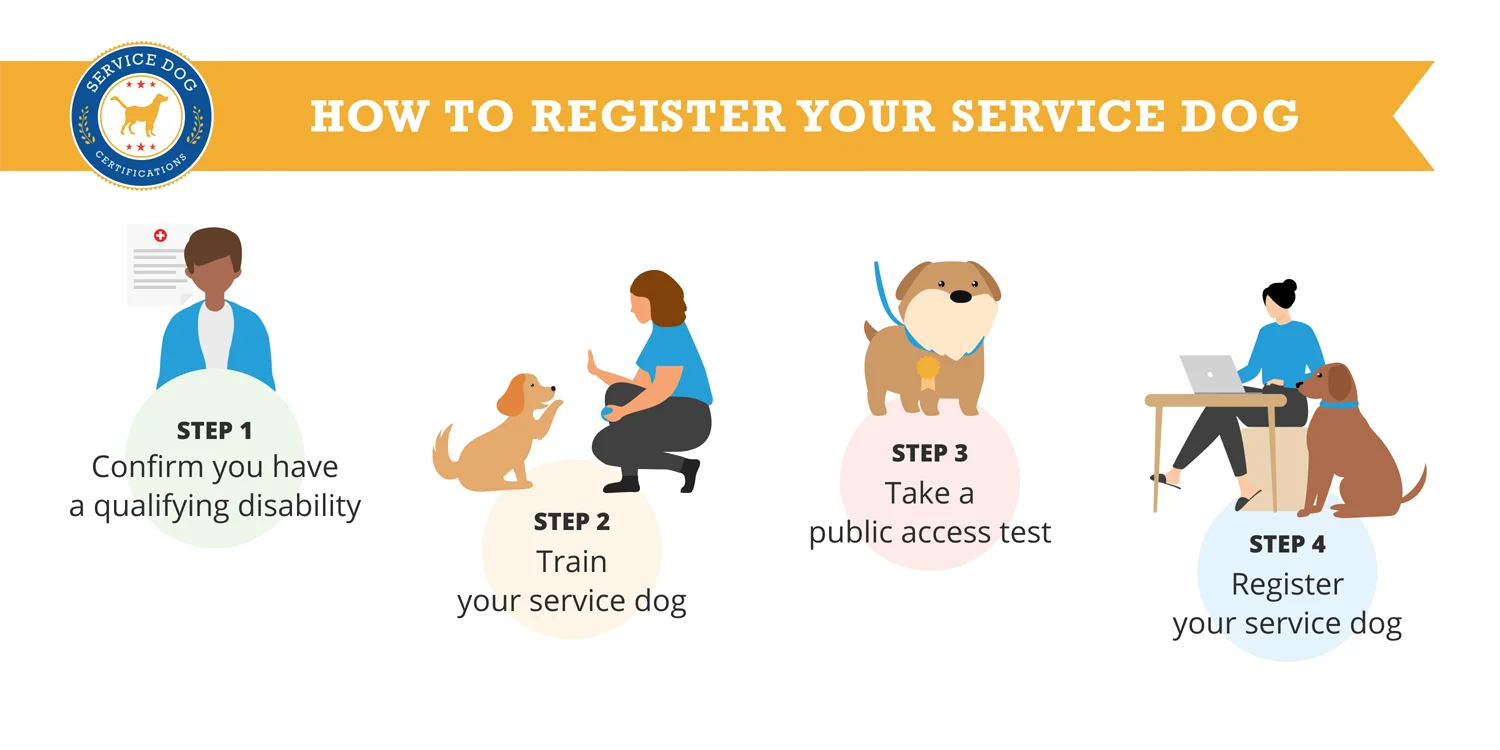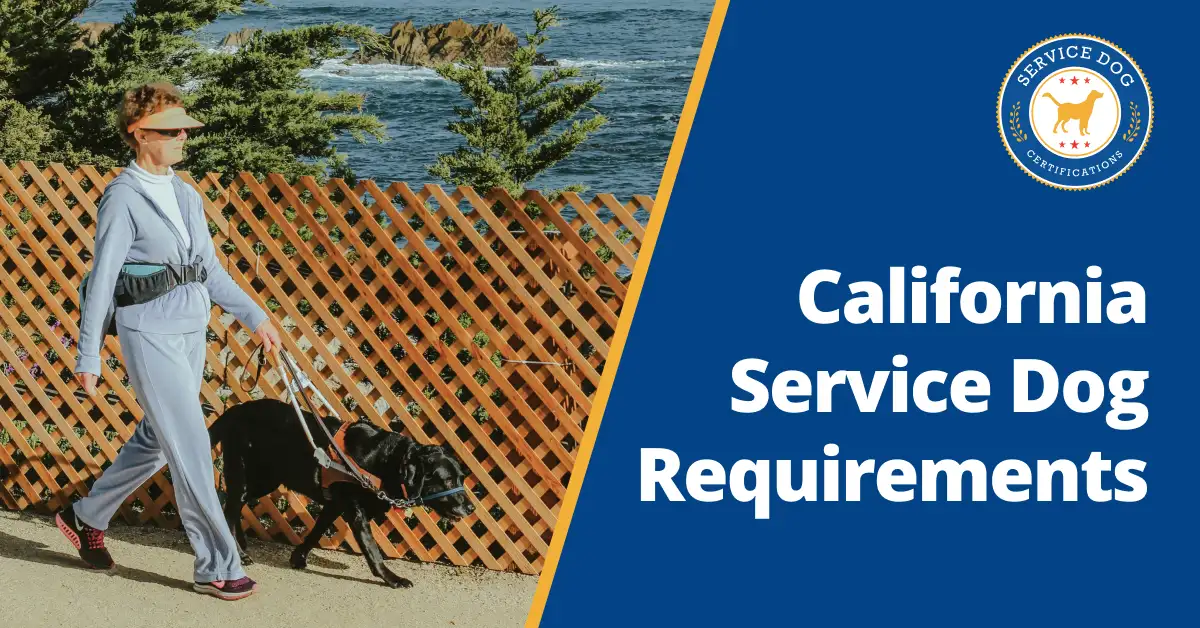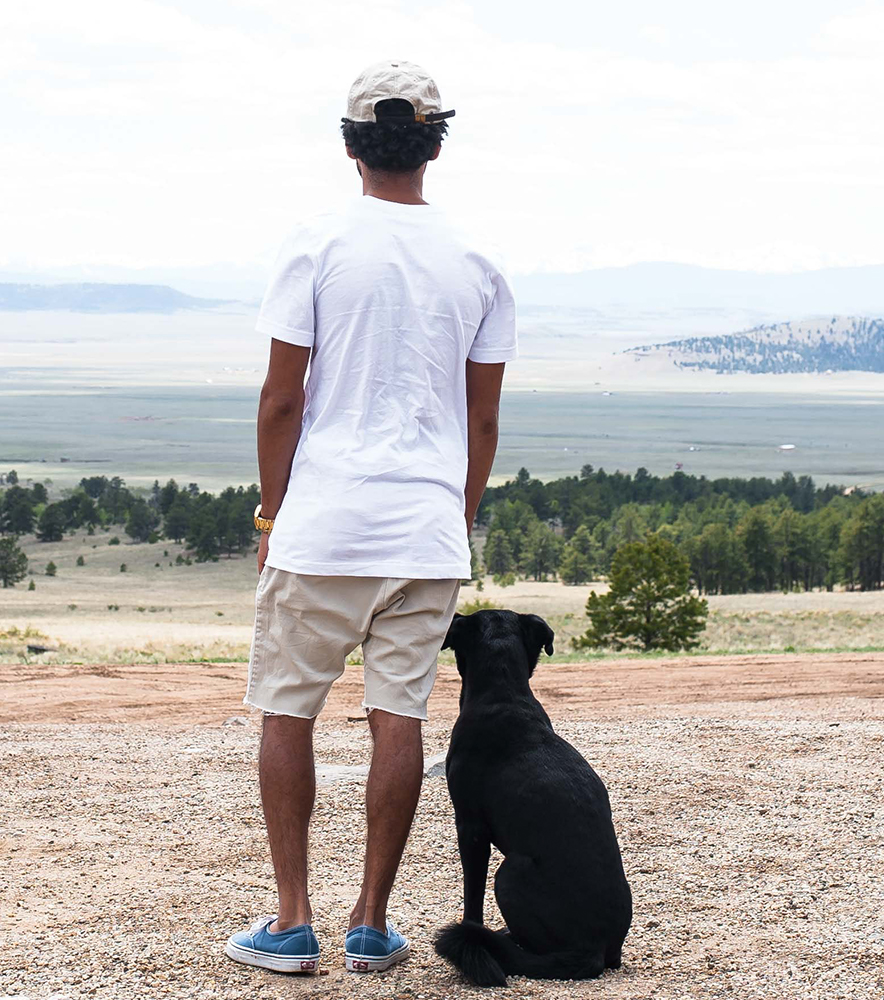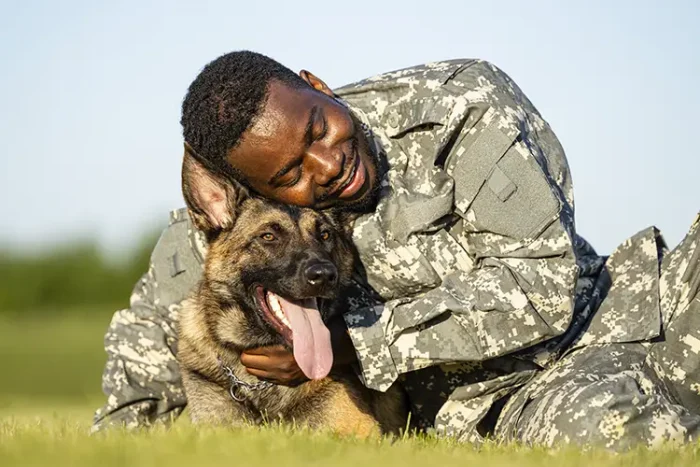Ohio Service Dog Requirements

You can bring a service dog almost anywhere where pets aren’t allowed in Ohio as long as you meet all the necessary requirements.
The rights of service dog handlers in the Buckeye State are covered under federal and state laws. This guide will walk you through Ohio’s legal requirements for service dogs.
- Ohio Health Requirements
- Ohio Training Requirements
- Ohio Registration Requirements
- Ohio Verification Requirements
- Ohio Legal Cases
Ohio Health Requirements
You must have a physical or mental disability recognized under the ADA if you want to own a service dog in Ohio. The term “disability” has a specific definition under the ADA. It means a condition that “substantially limits” a life activity, like the ability to work, socialize, sleep, or learn. This includes physical impairments like visual impairment and psychiatric impairments like severe depression, PTSD, or chronic anxiety with panic attacks.
Service dogs used for mental health are called psychiatric service dogs (PSD). If you’re unsure whether you meet the health requirements for owning a PSD, a PSD letter might help clarify the situation.
Ohio Training Requirements
A dog can’t be considered a service dog unless it performs a task that directly helps the handler with their disability. For example, service dogs can help guide blind people, retrieve medication, or provide a comforting paw during moments of psychiatric difficulty.
One interesting quirk under Ohio law is that there is a provision that states service dogs must be trained by a nonprofit special agency. However, this is superseded by the ADA, which is federal law. The ADA explicitly allows handlers to train their own dogs.
Most service dog owners do not utilize nonprofit agencies to train their dogs. They either use a professional trainer, self-train or adopt a fully-trained service dog for a fee. It’s perfectly fine to self-train a service dog in Ohio if you are capable of doing so.
All service dogs should master basic commands like sit, stay, come, down, and heel. It’s important for service dogs to always act appropriately and not show aggression, no matter where they are or what’s happening around them. They should not react to other animals, seek attention from people, or display disruptive behaviors such as barking, growling, or jumping up on others.
A well-trained service dog should stay focused on its tasks, even in situations that might be distracting.
Ohio Registration Requirements
You can voluntarily register a service dog in Ohio, but it is not a requirement. Registering a service dog in Ohio can give you useful perks like an ID card associated with the registration, but it’s at your option.
When you register a service dog with a service like Service Dog Certifications, the dog’s details are added to a searchable database and linked to an ID card. This ID card helps show others that your dog is a service dog and can be shown to people who may not know the rules about service dogs and keep insisting on proof.

Ohio Verification Requirements
In Ohio, if you want to bring your service dog into a place where pets usually aren’t allowed, and it’s not obvious what the dog does to help with a disability, you can be asked two questions:
- Is this animal needed because of a disability?
- What specific task or job has the animal been trained to do?
You don’t need to share details about your disability, show any ID for the dog, or demonstrate what the dog can do.
However, you must answer these questions clearly to show that your dog is a service animal, not just a pet or another type of assistance animal, like an emotional support dog. For example, saying your dog helps you feel calmer isn’t enough to prove it’s a service animal. You’ll need to describe how the dog has been trained to assist you, like if the dog has been trained to guide you to a safe place if you’re about to have a medical emergency.
Ohio Air Travel Requirements
You can bring your service dog to airports and the cabin of planes without charge. When flying from or to Ohio with a service dog, you must complete the Department of Transportation’s Service Animal Air Transportation Form and share it with the airline before boarding. We wrote a guide on how to fly with a service dog, which you can find here.
Ohio Legal Cases
A Veteran and his Service Dog at a Clinic
Failing to adhere to service dog requirements in Ohio can lead to expensive and time-consuming lawsuits. In one instance, a disabled veteran filed a lawsuit after an East Cleveland clinic allegedly refused to serve him because of the presence of his service dog.
The veteran required a service dog named Zulu, a black Labrador Retriever, to help him with stability, mobility, and PTSD, issues that he had been dealing with after suffering from injuries sustained while serving. The veteran claimed a nurse refused to help him because she was afraid of dogs.
The parties ultimately reached a settlement, but this case is a reminder of how important it is for businesses to have a service dog policy and for staff to know how to handle service dog requests appropriately.
Service Dogs in University Housing
In another Ohio case involving a student, a sorority member was allowed to keep a service dog inside her sorority house. The student needed her service dog, Cory, to deal with Post Traumatic Stress Disorder. Another sorority member complained that she was allergic to the dog and that the dog triggered symptoms of her Crohn’s disease.
This case illustrates a couple of important points. The first is that service dogs have housing rights under the ADA, which means they have to be allowed even in residences that ban pets. The other consideration is that inconveniences for other tenants are not enough to keep a service dog out of a home. The housing provider has to make reasonable accommodations for the service dog owner unless there is a health or safety hazard that can’t be mitigated.
About the Author: The writing team at Service Dog Certifications is made up of folks who really know their stuff when it comes to disability laws and assistance animals. Many of our writers and editors have service dogs themselves and share insights from their own experiences. All of us have a passion for disability rights and animals.
Related Articles

California Service Dog Requirements
In California, a service dog needs to be trained to perform at least one service dog task for a qualifying disability. If you meet those requirements, you can take your service dog almost anywhere with you throughout the Golden State. Californians are protected by both federal and state laws, including under the Americans with Disabilities […]

Read More

Texas Service Dog Laws
Individuals with disabilities whether they are physical or mental often feel isolated because it is harder for them to function in public; this is where service dogs come in. Service dogs provide individuals with disabilities the ability to have more freedom and go out in public without having to worry about what to do if […]

Read More

Colorado Service Dog Requirements
If you have a disability, you may qualify for a service dog. Colorado law aligns with federal guidelines. These guidelines allow a person with a disability to reside, travel, and perform their activities of daily living with a service dog. Colorado also takes the extra step to protect service dogs who are still in training […]

Read More




Is a service animal allowed in a senior living dining room by a guest and held in the lap at the table?l
Service dogs should be allowed in a dining room unless there is a specific health ore safety reason for exclusion. Otherwise, that is a perfectly normal place for a service dog to accompany their handler.